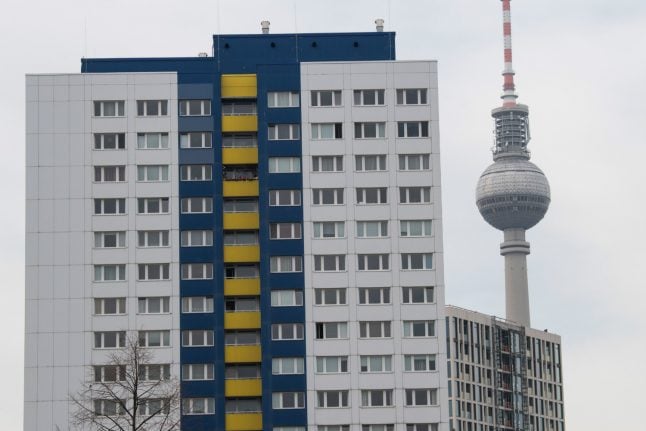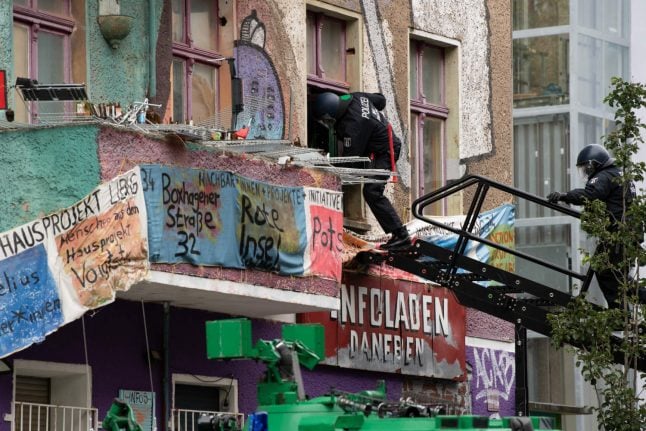Once described as “poor, but sexy”, Berlin has seen its housing costs double over the last decade as employees lured by the strong job market move into the city.
The new law, expected to come into effect in mid-February, will cap rents until 2025, after which any increases will be limited to 1.3 percent per year in line with inflation.
According to the city's department for urban development and housing, it will affect more than 1.5 million apartments.
READ ALSO: Berlin to freeze rent for five years: What you need to know
Exceptions include social housing and new apartments built since 2014.
“We are setting a clear stop sign”, said Left party politician Harald Wolf in a speech to the party.
The law is an urgent necessity he added, because many Berlin households already spend more than 50 percent of their household income on rent.
“Housing must not be an object of excessive profit maximization,” said Wolf.
“Today is a good, important day for Berlin. The rent cap is coming”, added the SPD's housing policy spokesperson, Iris Spranger.
She added that Berlin's governing coalition was firmly convinced that the law would also stand up before Germany's Constitutional Court.
For now Berlin is the first and only of Germany's 16 federal states to introduce a rental cap – with many critics arguing that it is unconstitutional and will unfairly impact competition.
“Three million tenants will benefit in the city”, Spranger continued. “After a long phase of galloping prices, rents will now be stopped with the rent cap – and that is also sorely needed”.
Lowered rents and fines
Some particularly high rents could even be lowered after the first nine months of the freeze, while landlords who break the rules could face fines of up to €500,000.
The rent freeze, passed by a slim majority of 85 votes out of 150, is a flagship policy of the local governing coalition of the centre-left SPD, the Greens and the far-left Linke parties.
But it has faced fierce opposition from other political parties and the property sector.
The conservative CDU has already indicated that it intends to challenge the law in Germany's constitutional court.
READ ALSO: In graphs: How gentrification has changed Berlin
Others fear that the freeze will simply discourage developers from building in Berlin and ultimately worsen the capital's housing crisis.
According to the property website Immowelt, Berliners spend a quarter of their income on housing costs.
Only 18.4 percent of the city's roughly four million residents own their own property, one of the lowest rates in Europe.
Yet the SPD, which is also the junior coalition partner in Chancellor Angela Merkel's federal coalition, has pledged to champion rent controls nationwide.
During the five-year term of the rent cap, Berlin's Urban Development department expects that tenants will be relieved by around €2.5 billion. Landlords will in turn lose income of about the same amount.
However, tax losses of around €421 million are also expected because landlords will have less income and profits will therefore be lower.
READ ALSO: Berlin rent freeze: 340,000 tenants paying 'too much' for housing



 Please whitelist us to continue reading.
Please whitelist us to continue reading.
Member comments